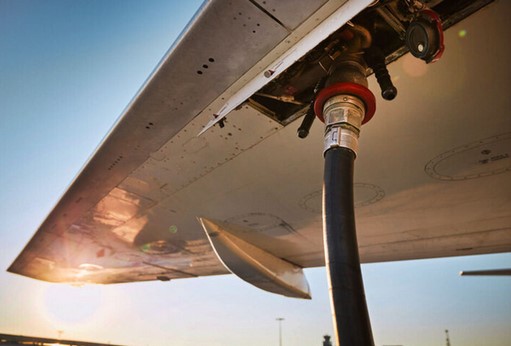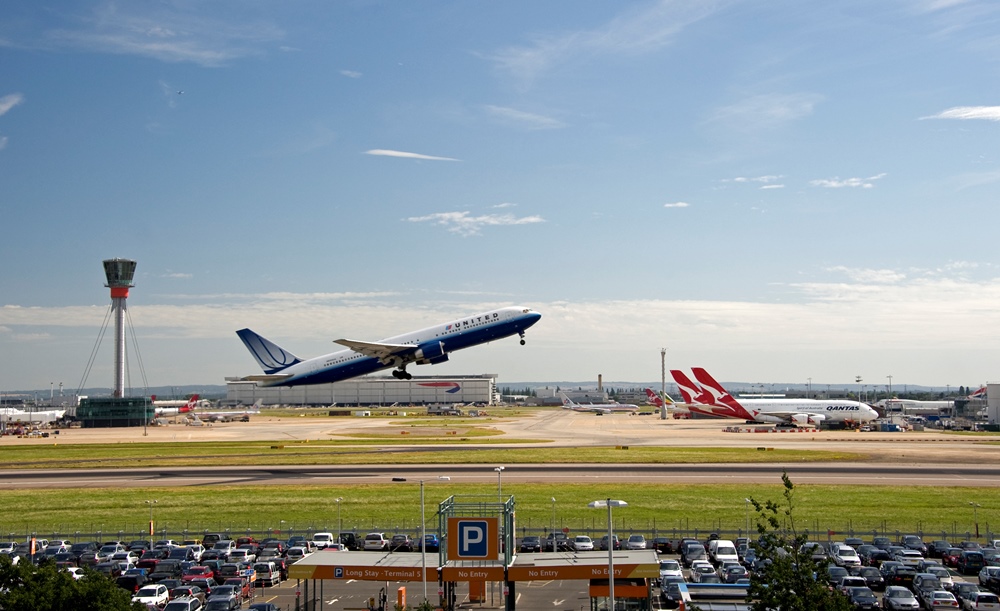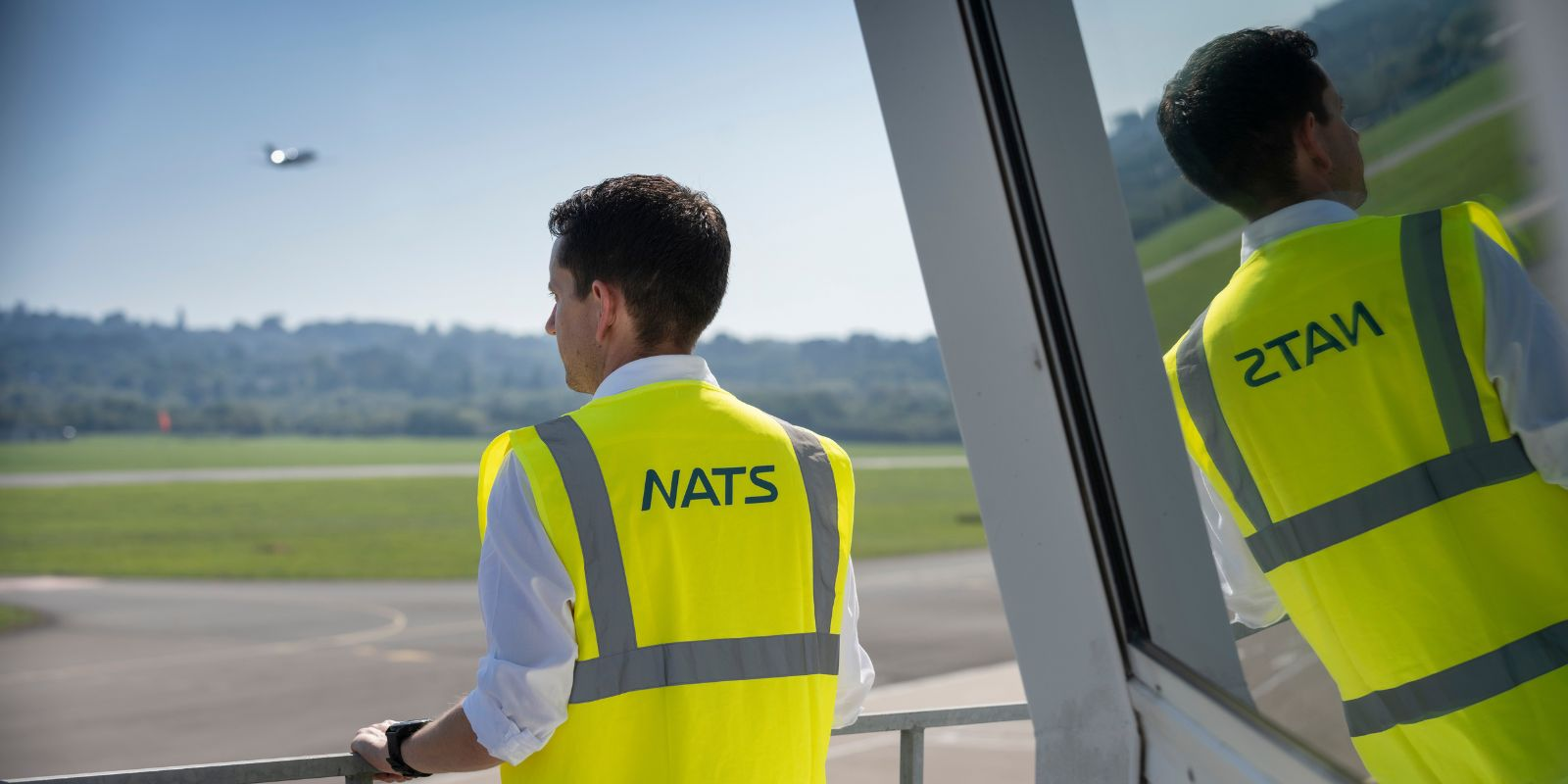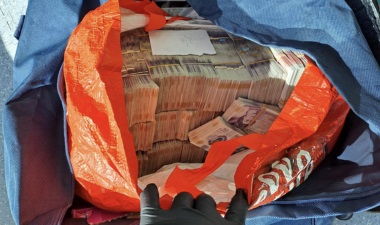British aviation set for more SAF

Image courtesy DfT
The UK’s SAF mandate, which, subject to parliamentary approval, which will come into force in January 2025, will be one of the first in the world to be put into law, once again putting the UK at the forefront of decarbonising air travel. It follows the world’s first commercial 100% SAF transatlantic flight taking off from Heathrow in November – backed by up to £1 million in government investment.
Following extensive consultations with the industry, the government has committed to ambitious but achievable targets that will see around 1.2 million tonnes of SAF supplied to the UK airline industry each year – enough to circle the globe 3,000 times.
The plans are good for aviation, the environment and for the UK overall with the SAF industry estimated to add over £1.8 billion to the economy and create over 10,000 jobs across the country.
This comes following £135 million of recent funding allocated through the Advanced Fuels Fund, supporting the growth of 13 groundbreaking SAF projects across the country.
While we recognise SAF may be more expensive than traditional jet fuel in the immediate term, we’re ensuring decarbonisation doesn’t come at the expense of consumers. This plan is part of our approach to ensure that the rationing of flights through ‘demand management’ is ruled out.
The plan includes a review mechanism to help manage prices and minimise the impact on ticket fares for passengers. The government also has the power to change key limits within the mandate to block higher price rises in the case of SAF shortages – keeping the impact on consumers to a minimum.
Providing sufficient SAF is available, any increases in air fares as a result of SAF will fall well within the range of usual fluctuations in prices we see every year and the government have plans in place to prevent any major hikes.
This is part of the government’s plan to deliver on our ambitious net zero commitments while ensuring we take a pragmatic and proportionate approach which minimises unnecessary burdens on the public.
Transport Secretary Mark Harper said: "Sustainable aviation fuel protects the future of UK aviation, the thousands of British jobs that depend on it, and the holidays and business travel flights that we all rely on.
"As part of our plan to grow the economy, the measures announced today will give both UK aviation and the UK SAF industry the certainty they need to keep creating skilled British jobs while giving passengers the freedom to continue travelling by air in a way that’s fit for the future."
SAF produces up to 70% less carbon emissions than the traditional fossil fuels used in most commercial flights. It is made from waste materials or by-products – like household waste, industrial gases or used cooking oil.
The government has also launched a consultation today into a range of options for a SAF revenue certainty scheme, which looks to guarantee revenue from SAF and provide new and existing producers and investors with the confidence to continue investing in the industry.
The consultation includes a preferred option of a guaranteed strike price (GSP), which guarantees a pre-agreed price of SAF supplied to the UK market – giving producers the confidence that they will receive a certain price for the SAF they make.
The plans set out in the SAF mandate have been widely welcomed by industry, with airlines, airports and SAF producers now having a clear vision as the sector continues to grow.
Karen Dee, Chief Executive of the Airport Operators Association, said: “Sustainable aviation fuel is a key part of the decarbonisation of air travel and a domestic SAF industry will create jobs, wealth and help the UK secure its energy independence. We are pleased that the government has brought forward proposals for a mandate and revenue certainty scheme, that will send the message to investors that the UK is serious about developing its own production facilities. Government and industry must now work together to keep this momentum towards delivery going so that we can grow sustainably and meet our carbon targets.”
Tim Alderslade, CEO of Airlines UK, said: "UK airlines support a SAF mandate as a vital step towards the net-zero transition as SAF will be one of the important technologies to achieve aviation’s net zero commitments. However, it is vital that government now puts the right measures in place to incentivise production and reduce the cost of SAF as seen in the EU and US, as quickly as possible. Without these, the UK will be at a competitive disadvantage with consumers at risk of higher fares.
"We welcome the delay to and subsequent increase in the cap on HEFA-based SAF to allow producers time to scale-up more advanced fuels, but the government must keep the buy-out price under regular review to avoid disproportionate price increases for consumers."
Gaynor Hartnell, Chief Executive of the Renewable Transport Fuel Association, said: "The mandate, in combination with guaranteed pricing, will see the UK start to produce SAF within the next couple of years. There are many ways of making SAF, and all have a vital role to play. Many of the plants our members will build will be ground-breaking, first-of-a-kind installations. The UK policy aims specifically to encourage SAF made from wastes, which presents an opportunity for innovation and ultimately the export of technology and expertise."
Luis Gallego, CEO of IAG, said: "We will continue to support the work of the Jet Zero Council to deliver the revenue certainty scheme so that much-needed SAF plants can start to be built here in the UK."
The mandate will also ensure SAF is created in ways that are better for the environment, encouraging techniques that turn renewable energy into fuel, known as power-to-liquid.
It will also incentivise the use of different types of waste to produce fuel, like sawdust and bark from forests, to tackle global issues such as deforestation, biodiversity and competition with food production – while placing a cap on fuel primarily made from cooking oil, which is the cheapest and most developed SAF pathway.
The measures have been announced today as the UK is now halfway to net zero – indicating significant progress towards carbon targets with a more pragmatic approach that eases the burdens on British citizens.
In reaction to the Secretary of State's announcement today on how the Sustainable Aviation Fuel Mandate will function in the UK, Matt Finch, UK Policy Manager at Transport & Environment, said: "The sustainable aviation fuel mandate is woefully unambitious. Despite the name, not all SAFs are genuinely sustainable and with this mandate the Government has decided to put airline profits above the planet by allowing in huge quantities of dubious SAF. Furthermore, this effectively guarantees that the Government's stated aim of having five SAF plants under construction in 2025 will not happen.
"There are already huge problems with the waste oils we convert into biodiesel for cars, and the Government has inexplicably ignored those by allowing such huge quantities to go into planes.
"The EU is taking aviation decarbonisation far more seriously than the UK. In 2040, the EU will require 34% of jet fuel to be sustainable in 2040, compared to just 22% in the UK. The EU has also recognised the important role hydrogen will play by requiring 10% green hydrogen-derived fuel in 2040, compared to a measly 3.5% here. It's clear who the climate leaders are, while our government has its head in the clouds."
A spokesperson for the RISE coalition said: “We welcome the Government’s response to the SAF mandate consultation and the launch of the revenue certainty mechanism consultation. However, without swift action, the UK risks falling further behind global competitors such as the US and EU. The Government needs to act quickly to back a British SAF industry which will create thousands of jobs, deliver cleaner fuel and better energy security for the UK and keep costs down for passengers."
Andrew Williams, partner at law firm Norton Rose Fulbright said: “The government is clearly attempting to strike a careful balance between reducing emissions, in line with its Jet Zero strategy, and mitigating inflation in air ticket prices if the aviation industry is primarily expected to foot the bill for the increased costs of SAF production – it aims to do this by incentivising SAF production and reducing the long-term cost of this fuel. However, it is a fine line to tread.
“The extent to which the government adequately supports the aviation industry through this transition and protects its long-term viability will be key to this new mandate’s eventual success. The aviation industry will be carefully scrutinising the proposals in the consultation on the SAF revenue certainty scheme to see what these proposals could ultimately mean for fuel suppliers, airlines and passengers."












